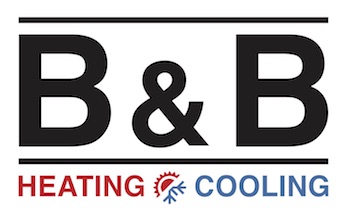
Did you perform a double take when you viewed your last energy bill? Although high energy bills can be the end result of severe weather events, consistently high bills can quickly suggest an inefficient HVAC system or your home is misusing energy by other means, such as drafty windows or poor insulation.
One of the easiest ways to figure out whether your home is wasting energy is by getting a home service professional to complete a home energy audit, also referred to as a home energy assessment. Keep reading to find out more about home energy audits, including what they are and their key elements.
What Is a Home Energy Audit?
An energy audit is a thorough inspection of how much energy your home consumes and whether – and where – your home may be losing or wasting energy. An inspector will review previous energy bills while completing an energy audit to figure out where energy is being consumed and how much.
The ultimate goal of an energy audit is to help homeowners save money on their energy bills by identifying energy-efficient improvements, which can include exchanging your existing HVAC system, putting in new insulation, sealing up leaks, or replacing drafty windows.
Over the course of the energy assessment, the auditor performs an inspection of the outside and inside of your home. The auditor completes a blower door test on doorways, windows and fireplaces to figure out if there are air leaks in your home. They’ll also inspect your home’s HVAC system, including the ductwork, the water heater, and the insulation in your attic. Exhaustive assessments could also include inspecting your current lighting system.
Benefits of a Home Energy Audit
It can be difficult for the ordinary homeowner to be sure how efficient their home is in comparison to other similar homes in their neighborhood. However, lots of energy companies often supply information about where your home is ranked when compared with similar homes and whether it’s more efficient, about average, or inefficient versus your neighbors’ homes. This is a great starting point to decide if you need an energy audit completed.
A few of the benefits of a home energy audit include:
Learning How Efficient Your Home Is
It’s beneficial to know how efficient your home is and where you’re consuming the most energy. For example, if your ducts are leaking, it will lead to a large increase in your energy bills and additional wear and tear on your HVAC system because it has to work longer to completely heat or cool your home.
Making Energy-Efficient Upgrades
An energy audit will outline where you need to make energy-efficient upgrades to conserve energy and lower utility bills. This might include replacing worn-down weatherstripping or getting a new energy-efficient furnace.
Improving Health and Safety
Permitting air to leak into your home through doors and windows, or because of a lack of insulation can cause unwanted moisture to form, which could negatively affect your home’s humidity levels or produce mold. This can exacerbate health conditions, especially for people suffering from asthma or allergies.
Increasing Your Home’s Retail Value
Energy-efficient homes are sought after by homebuyers. You can sell your home much faster or for more money by telling potential buyers that it’s energy efficient.
How to Do an Energy Audit of Your Home
Although performing an energy audit by yourself may not be as comprehensive as calling a professional, it’ll offer you a broad idea of how energy efficient your home is. If you don’t discover any problems during the DIY test, then you potentially don’t need to hire a professional. Follow this step-by-step checklist:
- Inspect your HVAC system. Broken ducts can lose as much as 20% of conditioned air, leading to higher energy bills and increased wear and tear on HVAC equipment. If you discover leaks, use duct tape to eliminate them. If your HVAC equipment is old and wearing down, upgrading to a new system can save you a significant amount on your energy bills. In some cases, it is better to call a reputable HVAC company to inspect your system.
- Watch for signs of air leaks. Air leaks on average can raise the energy bills by 10 to 20%. Inside, look for air leaks in areas where there could be a draft, such as along the edge of flooring and near baseboards and electrical outlets. Outside, you can inspect for air leaks along the home’s foundation, siding and mortar. Plug, caulk or seal any air leaks to save money.
- Inspect insulation. If your home is older, it could mean your insulation is too. If you can see the joists, you likely need more insulation.
- Check ventilation. Ensure that all of your kitchen and bathroom exhaust fans are functioning properly, and inspect for evidence of rot or moisture.
Contact B & B Heating & Cooling for a Professional Energy Audit
If you want professional help determining how energy efficient your heating and cooling equipment is, call the HVAC experts at B & B Heating & Cooling today. We’ve proudly supported the residents of Florissant and St. Charles with quality home services for years. Contact us today to schedule an appointment.
